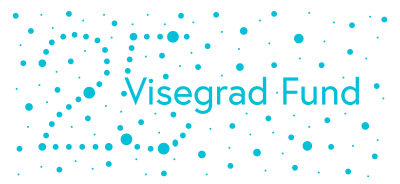Q: We are a school from Austria. Can we apply for a V4Gen Mini Grant?
A: Only legal entities registered in V4 countries (i.e., Czechia, Hungary, Poland, Slovakia) can apply for support.
Q: Who can be a partner in a V4Gen project?
A: Each project must involve at least two entities from V4 countries (Czechia, Hungary, Poland, Slovakia) but can also include entities from direct neighbors of two V4 countries (i.e., Austria, Germany, and Ukraine).
Q: We are filling out the application form. What is Formal grant applicant and Final beneficiary/implementing organization?
A: In case the applying organization cannot conclude contracts, enter the founding entity or your governing body to the "Formal grant applicant" textbox. For example, if your organization is a public primary school, it may not have the legal capacity to independently enter contracts. In such cases, you would need to specify the entity or authority that acts on behalf of your organization in contractual matters. This could be your local municipality, school district, or any other relevant governing body. The "Final beneficiary/implementing organization" in this case would be the school.
Q: Do we need any document from partners to apply?
A: If your application is approved for support, your partners will receive a confirmation link via our online system. Partners are generally required to confirm their participation through the online system, but in exceptional circumstances, we may request a formal "letter of intent" from a partner, which will be determined on a case-by-case basis.
Q: What is the lowest/highest number of participants in the project?
A: We do not impose specific limits on the number of participants, but we prioritize a balanced composition to create a more inclusive and diverse environment for our programs or initiatives. An example of this balance could be having an equal distribution of participants from different regions or countries (15 participants from Hungary and 15 from Czechia, etc.)
Q: Should we include all participants in the mobility section or just those who travel?
A: You should account for all direct participants involved in the mobility aspect of the project, regardless of whether they are traveling or hosting.
Q: How long can one mobility last? How many events can we have during one project?
A: The maximum duration for one mobility or event within our projects is 7 days. Longer activities can be split into separate, successive events (e.g., if you plan a 2-week summer school, you can divide it into two separate 1-week events within your project). During one project, you can organize a maximum of 3 events or mobilities.
Q: Can a participant who is 40 years old join the program?
A: The eligible age range for participants is 12 to 30 years old. However, we do welcome chaperones or accompanying persons who are older than 30 years of age to join the program.
Q: Who is an Accompanying person?
A: An accompanying person, in the context of a project, is an individual who provides guidance, support, and supervision to young participants during the project or program. The accompanying person is typically responsible for ensuring the well-being, safety, and overall welfare of the youth involved.
Q: What is the procedure for applying to the project?
A: The application process involves a few straightforward steps:
-
Register in the "MyVisegrad" System: Begin by creating an account in the "MyVisegrad" system.
-
Submit Your Project Idea: Provide details about your project by answering questions such as:
-
"What organization do you represent?"
-
"Who are your partners?"
-
"What do you plan to do with your partners?"
-
"How many participants do you plan to involve?"
-
"What is the age range of the participants?"
-
Wait for Approval: Once your project idea is reviewed and accepted by the Fund, you will receive a notification that the application form is open.
-
Complete the Application Form: Proceed to fill out the required details in the application form and submit it in the online system.
